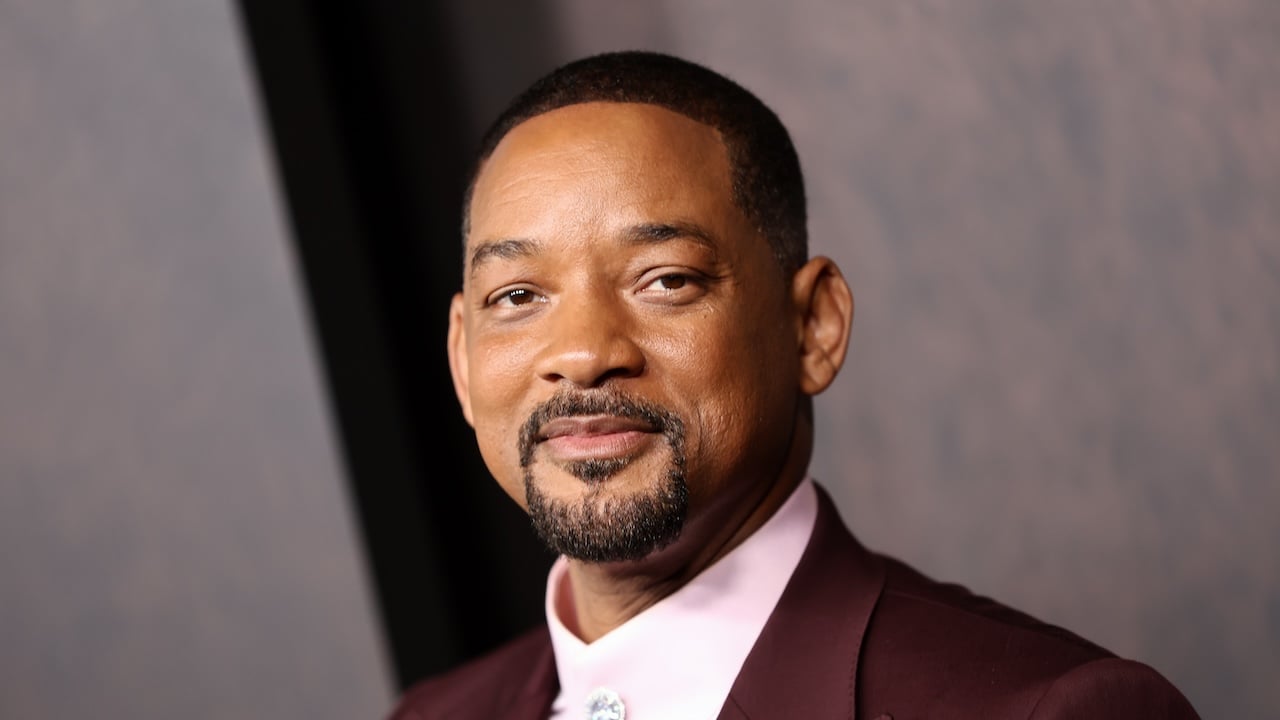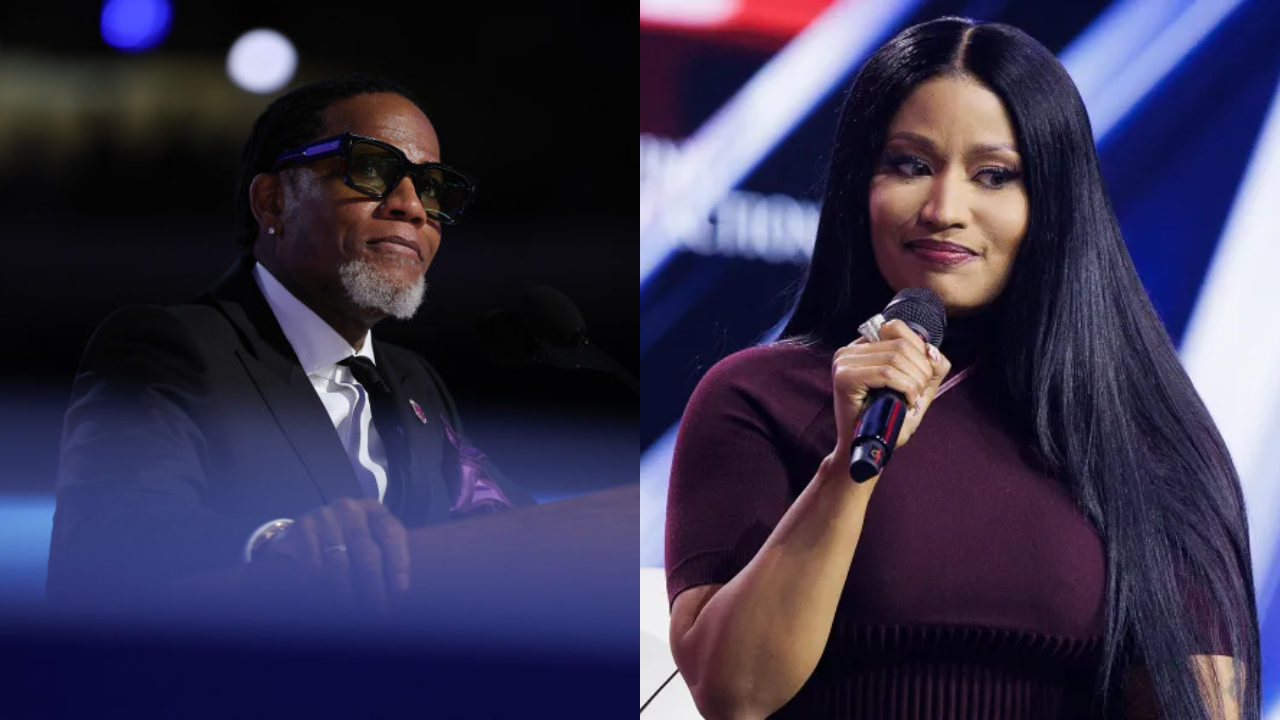Dear Michael Vick, DeSean Jackson: Here’s advice from NFL alums now coaching HBCUs
Listen to this story
When former NFL star Eddie George accepted the job of head football coach at Tennessee State in 2021, he didn’t come with years of coaching experience or an extensive playbook. Once on campus, the 1995 Heisman Trophy winner found himself grappling with the nuances of coaching at a historically Black college or university (HBCU) and growing pains on the sideline.
“I came in not knowing anything,” said George, who accepted the head coaching job at Bowling Green in March. “I’ll be very transparent, and I was learning on the job, and I had to have some hard lessons I had to go through in terms of that. … My overall HBCU experience was one that I appreciate so much because it has prepared me on so many levels for what I’m doing now.”
As former NFL stars Michael Vick and DeSean Jackson enter the world of HBCU football, NFL alums such as George, Eddie Robinson Jr. and Sam Shade, who have made a similar transition, have advice for former players wanting to follow in their footsteps: While their names may have opened the door to their respective opportunities, coaching at an HBCU entails factors other than X’s and O’s.
George believes that stellar coaching and pouring into young men beyond the game will determine success at the HBCU level. He said he often leaned on Robinson, the head coach at Alabama State, for guidance, especially about the unique challenges of coaching at an HBCU.
Their conversations helped George realize that success doesn’t always require having a lot of resources but instead requires finding creative ways to overcome obstacles.
Tommy Martino / University of Montana / Getty Images

“Our weight room may not be as big as Ohio State, but we still have a weight room. We got white lines and chalk. We’ve got some equipment that we can use, but the teaching and coaching, it’s got to be stellar,” said George, who played at Ohio State.
“In terms of having the support there, the resources at Tennessee State, we had to do ‘hard’ better. We had to do a lot of things on our own a lot of times, and we weren’t probably as efficient as we could be because of the lack of support or the lack of help that we did have, but we were able to strengthen our resolve because of it.”
At Tennessee State, George finished his tenure with a 24-22 overall record. He compiled back-to-back winning seasons in 2023 and 2024. He also led the Tigers to a share of the Ohio Valley Conference championship in 2024, their first since 1999, and an appearance in the FCS Playoffs.
His advice to former NFL players who want to transition into collegiate coaching? Be a problem solver.
“Understanding what you’re getting into – it’s not going to be like a Power [4] institution,” George said of schools from college football’s top conferences. “You got to have high standards, and you got to continue to build on that. Looking at it holistically, again, knowing that there are challenges there, but you’re there to solve some of those challenges, embrace the hard stuff and finding solutions for it.”
Watching Deion Sanders’ success coaching Jackson State and seeing George take over TSU’s football program ahead of the 2021 season is what inspired Alabama State’s Robinson to seriously consider coaching.
Their examples made Robinson reflect on his own interest, and he realized that if the right opportunity came along, he should go for it. Then Alabama State, his alma mater, offered him the head coaching position in November 2021.
Robinson said that recognizing that the chance to lead a Division I football program doesn’t happen often, turning down the offer would’ve been a big “what if?” for him.
Don Juan Moore / Getty Images

“It was – a lot of it is on-the-job training. I don’t think you can ever say you won’t know if you’re ready to be a head coach until you just get out there,” he said. “Some things you do well, some things [you] are going to mess up, but you should be learning something new every day. … It’s like swimming for the first time. Until you jump in the deep water, you don’t know if you’re ready.”
Robinson said though there’s definitely a difference in resources between Power 4 schools and HBCUs, he doesn’t think it’s as big as it was when he was playing in the ’90s.
“If you’ve been successful at the NFL level, you say, ‘I don’t want to go back to college and not be successful,’” Robinson said. “That’s part of the challenge. … Although you have the apprehension of ‘How am I going to do?’ you love the challenge aspect of it, that this is something that I know I have to really work hard to try to accomplish.”
Robinson said his biggest adjustment was learning how to navigate the administrative side of collegiate football. He quickly realized there’s a lot to handle before even stepping on the practice field, from compliance rules to mandatory meetings. While the football side felt natural, he said the behind-the-scenes responsibilities were the real learning curve.
In three seasons with the Hornets, Robinson has finished each season with a winning record, going 20-14 overall (14-10 Southwestern Athletic Conference). Being able to tap former Alabama State head coach Reggie Barlow, who is now head coach at Tennessee State, for his guidance was key to Robinson’s success, he said.
“You’ve got to get a guy, in my opinion, that was successful at the HBCU level, that can kind of help you, mentor you through it,” Robinson said. “You don’t have time to try to figure it all out yourself. You’ve got to get somebody that’s going to help you [and] say, ‘Hey, Coach, man, I’ve been through this. I’ve seen it before. Let’s move this way. Let’s move that way.’”
Unlike many of his NFL peers who jumped straight into Division I head coaching jobs, Shade, who was named head of Alabama A&M’s football program in December 2024, took a longer road.
He started as a volunteer high school coach and steadily climbed the coaching ranks, transitioning from working as an NFL assistant coach to a Division II head coach at Miles College (Ala.) before being hired to coach the Division I Alabama A&M Bulldogs.
Shade said he knew coaching was his true passion and purpose because he loved it so much he was willing to do it for free – and he did so for several years. That early experience gave him time to fully commit and grow into the role.
During his year as an assistant coach with the Cleveland Browns, Shade closely observed the leadership styles of head coaches and coordinators, studying how they planned and organized. He saw it as preparation, getting himself ready to one day become a head coach.
He said coaching in the SWAC was always his goal because several of his relatives attended SWAC schools. A decade ago, he was in consideration for a coordinator position in the conference, but it didn’t pan out. Now, the Birmingham, Ala., native is excited to be a head coach in the conference in his home state.
Alabama A&M Athletics

He credits Sanders, now the coach at Colorado, and other former NFL players for helping elevate the national attention given to HBCU programs.
One of Shade’s first observations when he started coaching HBCU football was that his players didn’t see or play the game the way he did when he was a player.
“They don’t have maybe my work ethic, they don’t have maybe the same ability,” he said. “They might not have the same football IQ. So it teaches you to really take it from the ground up. You’ve got to build a foundation to really train them up, develop them.”
Shade said that coaching HBCUs and lower levels of college football requires selflessness and a willingness to do whatever it takes to overcome challenges that come with the job. Throughout his coaching career, Shade has juggled a range of responsibilities, from driving his players to games to washing uniforms and becoming an equipment manager.
“I believe no job is too big or too small. I just feel like you’ve got to be that guy. … You can’t bring an ego with you,” Shade said. “You got to come in and really just say, ‘Hey, man, if the bus breaks down, I’m willing to get off and push the bus.’ But if you just want to ride, then you’re not coming to the right places.”
In three seasons at Miles, Shade compiled an 18-15 overall record and a 15-7 record in the Southern Intercollegiate Athletic Conference (SIAC). In 2024, he led his team to a conference title and reached the second round of the NCAA Division II playoffs.
“I tell people all the time, [coaching is] about the relationships. Athletics, football especially, I’m a big relationship guy,” he said. “I think you gotta have great relationships with your players, with your coaching staff and other people on campus because they’re all such a big part of your success.”
The HBCU coaching pipeline has opened doors for former players, especially Black men, to enter the profession without navigating historical barriers that have long limited opportunities.
When George was an active player in college and the NFL, he recalls, the talented Black coaches he knew were often confined to position roles like running backs coach, defensive backs coach or recruiter without getting chances to become coordinators or head coaches.
While progress has been made with more men of color earning leadership roles, George said the long-standing “glass ceiling” was one reason he initially avoided pursuing a coaching career until Tennessee State called.
“Eddie Robinson had success. Deion [Sanders] has had success. I have had success. So you don’t have to necessarily go through the traditional rungs of being a [grad assistant] first and then going up that ladder,” George said.
“We played at a very high level. …There is an expectation [and] culture that we all understand. So now I think it gives a lot of guys that have played in the NFL confidence [to] say, ‘Hey, you know what? I can do a traditional route, but I can also hone my craft by going a completely different route.”
Robinson acknowledged that the shift in the HBCU football landscape fueled by Sanders’ hiring at Jackson State benefited him and several others. However, he also realized that while hiring former NFL players as first-time head coaches can generate publicity for historically Black colleges and universities, one of the drawbacks is bypassing experienced coaches.
“I think the flip side of it – and it has been pointed out by guys also – is that you have a lot of good HBCU coaches who attended HBCU schools, who are ready to become head coaches and would do a great job,” Robinson said. “Now their opportunity is kind of pushed to the sides or at least delayed for a couple years.
“I think we gotta also remember that there’s a lot of really good guys who went to HBCUs who moved up the coaching ranks. We can’t forget those guys, that they definitely deserve those opportunities just as much.”
What's Your Reaction?
 Like
0
Like
0
 Dislike
0
Dislike
0
 Love
0
Love
0
 Funny
0
Funny
0
 Angry
0
Angry
0
 Sad
0
Sad
0
 Wow
0
Wow
0





























